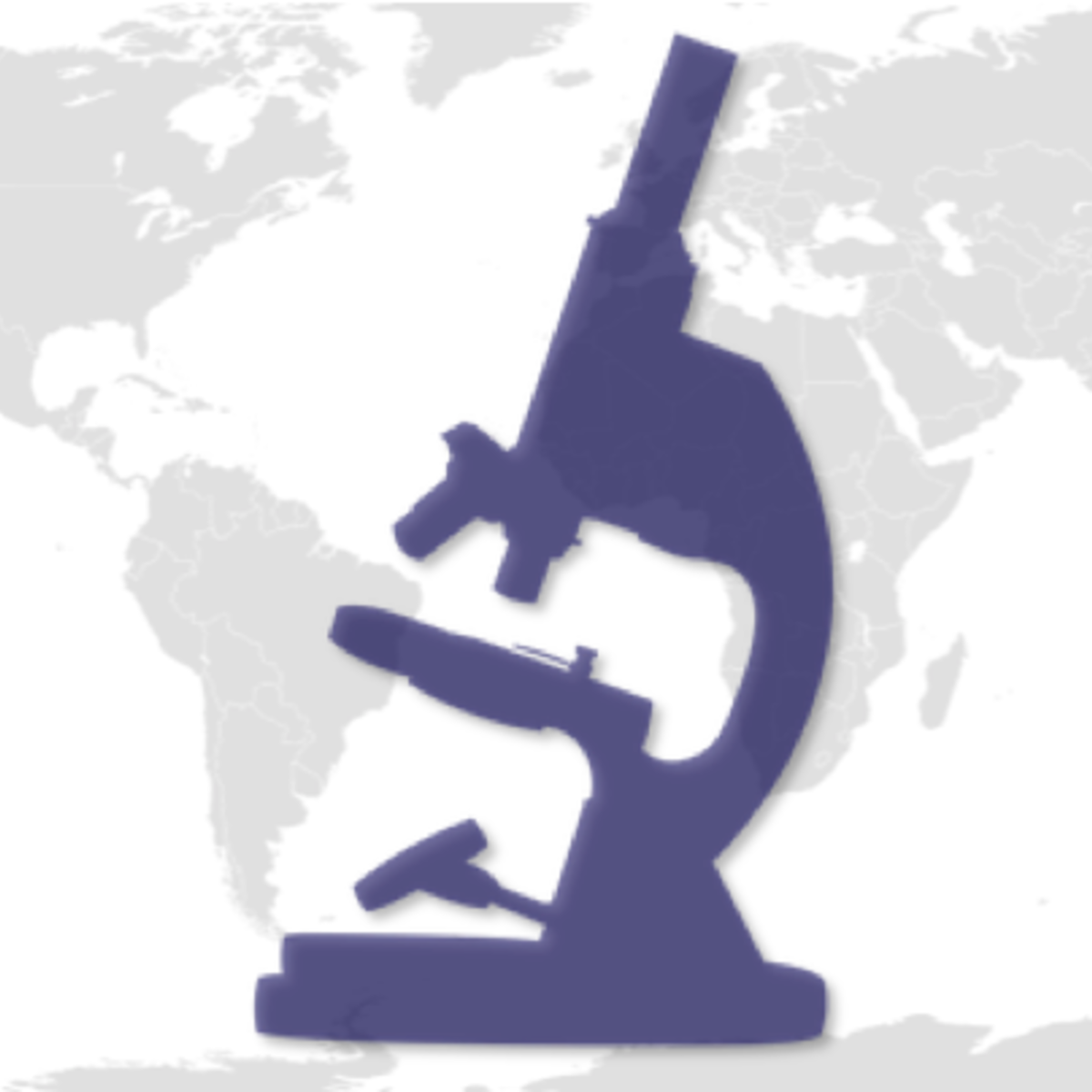Back to Courses









Governance And Society Courses - Page 6
Showing results 51-60 of 270

Traditional herbal medicine in supportive cancer care: From alternative to integrative
Please join us for an exciting and innovative journey, examining one of the most important and often overlooked aspects of the oncology setting:
Traditional Herbal Medicine in Supportive Cancer Care.
This course is presented with short lectures offering a wide range of issues related to the principles and practice of herbal medicine in cancer care. The course includes interviews with leading world experts from the field of Integrative Oncology, from the U.S. and Canada, as well as Europe, the Middle East, China and Japan.
By the end of the course, you will:
• Understand core concepts in Integrative Oncology, as they relate to the supportive/palliative cancer care setting
• Acquire effective communication skills which will foster a better understanding of patients' views on herbal medicine, while providing guidance on the safe and effective use of these products
• Be able to design, together with patients, caregivers and healthcare providers, a patient-tailored and cultural-sensitive integrative oncology treatment program, including the use of herbal medicine
• Be acquainted with leading "players" who can share their experience in creating and implementing an integrative oncology program
The course has been specially designed to provide information and guidance at a level appropriate for patients and non-medical participants, as well as medical professionals interested in receiving evidence-based guidance on the safety and effectiveness of herbal medicine in cancer care.

Sustainable Development - Ideas and Imaginaries
Ideas and imaginaries inspire human capacity for great endeavours, but ‘conventional wisdom’ frequently prevents necessary change. Achievement of global sustainable development is, therefore, dependent on a profound comprehension of the preunderstandings and implicit imaginaries that form both our perception of reality and our basic confidence in the viability of transgressive action.
The present-day concept and ideal of sustainable development contains many interlaced meanings and many contradictions. In order to bring out the concept’s indisputable transformative potential, and be able to gain support, promote decision-making and take action in it, it is, therefore, requisite to disentangle this mélange and shed light to the implicit preunderstandings .
This course will contribute to doing so by focusing on the historical roots and multiple layers of meaning of sustainable development, and by exploring questions such as: ‘What is the historical background of the current Sustainable Development Goals?’, ‘Which imaginaries about relations between individual and collective tend to promote and prevent sustainable solutions?’, ‘How can ideas about humans and nature affect global development?’, And ‘how do we as humans react on inconstant notions of time and change?’
During this course, you will meet associate professor in history Bo Fritzbøger from Centre for Sustainable Futures as the primary lecturer and a range of cultural, natural and social scientists, all from the University of Copenhagen working with different aspects of sustainability thinking.
We hope that you will join us in the course and qualify your participation in current discussions about how to achieve common sustainable development in a divided world.

Doping : Sports, Organizations and Sciences
The objective of this course is to encourage a critical understanding of doping. To achieve this goal, this course will rely on a multidisciplinary approach that allow you to see how different disciplines get into a single object, in different perspectives and in often complementary ways. This approach will also allow us to appreciate the complexity of a subject like doping.
Doping in sports is a complex practice whose definition and identification is the result of socially and historically constructed norms.
This course offers to shed light on the processes that led to the use and prohibition of doping substances. Performance enhancement or physical transformation are two aspects of doping which are seen as problematic, yet even as we speak companies are making fortunes selling body improvement and other forms of “human enhancement” to us. These apparent contradictions will be analysed to show that beyond sanitary questions, doping raises many social, scientific and legal issues.
In efforts to control doping, governments and sports authorities have put into place institutions responsible for defining what falls into the category of doping, but also what prevention, repressions and research methods to put into effect. This course will also explore biological control measures such as the biological passport, key legal dimensions, organisations that produce performance, as well as the sociological dimensions of doping.
Besides the Professors of University of Lausanne, the best experts of doping are involved in this course: experts from an Anti-doping Laboratory (LAD- Lausanne-Switzerland), from the CAS (Court of Arbitration for Sport), from the UEFA (soccer), and from the WADA (World Anti-Doping Agency).
Teaser: https://www.youtube.com/watch?v=20Q3eR_g7rU
Main Learning Outcomes
At the end of the course the participants will be able to :
1. Identify the “cultural” dimension of doping, that is as a historical practice linked to the transformation of social norms,
2. Go from a binary way of thinking - for or against doping - to an understanding of the complexity of this phenomenon which is biological, psychological and sociological, all at the same time,
3. Recognize the institutions, the actors and the practices of the fight against doping,
4. Explain how the social and organisational context influences individuals decisions and how this influence can be reduced by effective prevention measures,
5. Identify how the fight against doping is led and how testing is carried out.

Inequality and Democracy
Most countries are getting more and more unequal. But the core of democracy is political equality: that everyone should have an equal say in how their country is run. Can we really expect these things to go together? Can people have equal political power while economic inequality grows and grows? Take this course and decide for yourself.
You’ll learn about:
• The rise of economic inequality
• Property rights and the corporation
• Democracy: Its value and history
• Campaign finance and lobbying
• Tax avoidance and capital flight
• Alternatives to our economic system
This is an interdisciplinary course combining:
• Politics
• Philosophy
• Economics
• History
• Law
Our course is for anyone looking for an accessible introduction to these topics. You might a concerned citizen, or someone who works in a field like politics, media, education, government or law. The difficulty level is similar to the first-year of an undergraduate degree. No prior knowledge is assumed.

Data and Health Indicators in Public Health Practice
Epidemiology is often described as the cornerstone science in public health. Epidemiology in public health practice uses study design and analyses to identify causes in an outbreak situation, guides interventions to improve population health, and evaluates programs and policies.
In this course, we'll define the role of the professional epidemiologist as it relates to public health services, functions, and competencies. With that foundation in mind, we'll introduce you to the problem solving methodology and demonstrate how it can be used in a wide variety of settings to identify problems, propose solutions, and evaluate interventions. This methodology depends on the use of reliable data, so we'll take a deep dive into the routine and public health data systems that lie at the heart of epidemiology and then conclude with how you can use that data to calculate measures of disease burden in populations.

Cities and Consumption: Urban Sustainability and the Sharing Economy
How can we govern consumption and the sharing economy in our cities?
This course explores cities, consumption and the sharing economy in Europe and around the world. We connect together the key themes of the sharing economy, cities, governance, consumption and urban sustainability. We explore how the sharing economy can contribute to increasing social, environmental and economic sustainability. And we argue that it is imperative that the sharing economy is shaped and designed to advance urban sustainability.
This course was launched in May 2020, and it was updated in September 2021 with new podcasts, films and publications. This course is produced by Lund University in cooperation with partners from Sharing Cities Sweden – a national program for the sharing economy in cities with a focus on governance and sustainability. It features researchers, practitioners and entrepreneurs from a range organisations.

Cybersecurity Policy for Aviation and Internet Infrastructures
In this course we will examine the aviation and Internet infrastructures, and various policies that have been developed to help guide and strengthen their cybersecurity programs. The aviation and Internet infrastructures are also considered "lifeline infrastructure" as part of the transportation and communications sectors. Both subsectors are overseen by the Department of Homeland Security National Protection and Programs Directorate which manages the DHS National Infrastructure Protection Program. SSA responsibility for the aviation subsector is shared between the Transportation Security Administration and Federal Aviation Administration under the auspices of the Department of Homeland Security and Department of Transportation respectively. The Department of Homeland Security retains sole responsibility as the Sector-Specific Agency for the Internet subsector. While TSA and FAA have regulatory over the aviation subsector, DHS has no regulatory authority whatsoever over the Internet. In response to Executive Order 13636 issued by President Obama in February 2013, both sets of SSAs recommended continuing with voluntary cybersecurity measures. TSA and FAA reported they were working to implement the Transportation Roadmap across all transportation subsectors, including aviation. DHS reported that it was working with Internet providers to implement the Cyber Assessment Risk Management Approach. Despite some differences, the Transportation Roadmap and CARMA are very similar to the NIST Cybersecrity Framework and ES-C2M2 examined previously. That is to say, they are predicated on a continuous improvement process that engages the whole organization in identifying and implementing incremental changes to enhance cybersecurity practices based on prevailing standards. This module will examine both the aviation and Internet lifeline infrastructure subsectors, and elements and application of the Transportation Roadmap and CARMA.

Homeland Security and Cybersecurity Future
This course takes a look at the future of cybersecurity with respect to what is being done to lessen the potential for catastrophic destruction resulting from cyber attack on critical infrastructure. In this respect, we take a short survey of potential technological solutions and response options. We conclude this module by taking a look at unique aspects of the cyber profession and personal considerations for those who want to make cybersecurity a career.

Diversity and Inclusion: Developing A Strategy
PART 1: Job Design, Selection Criteria, Sourcing and Attracting Talent
The first step in a recruitment strategy for developing a diverse and inclusive workforce commences with the decision that a job or role is needed, either an existing or new position.
In this course, you will learn that unconscious bias is often most evident in the language of job descriptions, selection criteria, and job advertisements. The words and phrases used when writing these materials can unintentionally make certain groups of people feel excluded from applying.
You will learn to detect limiting language and develop resources that attract a diverse and capable candidate pool. This course will also introduce you to alternative applicant sourcing strategies, including online platforms and communities.
This course represents 'Part 1' of the two-part Diversity and Inclusion Recruitment Strategy series offered by the University of Western Australia. It is also one of four that comprise the Recruiting for Diversity and Inclusion Specialization.
Complete all four courses to gain an in-depth understanding of this fascinating and important topic.

Diversity and Inclusion in Education
Student diversity is becoming the rule rather than the exception in education systems across the world. Students bring to classroom different characteristics such as ability and disability, socio-economic background, race, ethnicity, and cultural background, beliefs and religion, and gender characteristics. The United Nations’ Sustainable Development Goal 4 aims to ensure inclusive and equitable quality education and promote lifelong learning opportunities for all (United Nations, 2015).
However, creating inclusive quality education for all remains a ubiquitous challenge faced by educators faced with increasing student diversity. And certain groups of students are more likely to experience barriers to access, participate and success in education.
During this course, you will:
Develop a critical understanding of the concepts and assumptions about diversity and difference, including notions of ability and disability, socio-economic background, race, ethnicity, and cultural background, beliefs and religion, and gender.
Develop awareness of historical and contemporary definitions of inclusive education, taking into account policy, theories and models.
Develop the ability to critically analyse contexts in order to identify barriers to developing inclusive and equitable quality education for all learners.
Develop knowledge about ways to develop inclusive and equitable quality education for all learners, taking into account their diverse characteristics and needs.
Popular Internships and Jobs by Categories
Find Jobs & Internships
Browse
© 2024 BoostGrad | All rights reserved